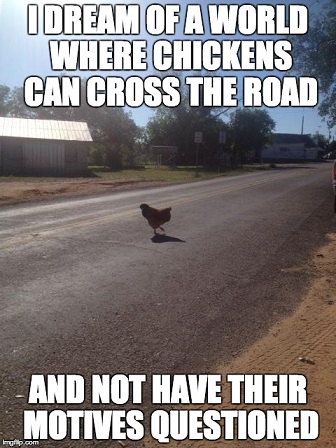How much for my potato photos? The bidding begins now! 🙂

(Photos taken 1/28/2016.)
How much for my potato photos? The bidding begins now! 🙂

(Photos taken 1/28/2016.)
There are a gazillion websites on the internet. And yet, you’ve chosen to visit mine.
I’m humbled.
I’m thankful.
I appreciate you. (Yes, you!)
Without an audience, I’m just talkin’ to the wall. Not that I mind talkin’ to the wall, but unfortunately, the wall doesn’t talk back. And that’s no fun at all. I mean, who wants to be right all the time? 🙂
http://www.theatlantic.com/technology/archive/2015/09/how-many-websites-are-there/408151/
In 1994, for example, there were fewer than 3,000 websites online. By 2014, there were more than 1 billion. That represents a 33 million percent increase in 20 years…
The weird thing is, most of these sites exist without being seen. The average person doesn’t venture very far across the web, only visiting 96 separate domains per month, according to a Nielsen estimate in 2013…
By 2012, the most recent year for which data is available, Google was serving more than 3.5 billion searches per day—equivalent to 40,000 searches every second…
From Google:
ballsy: tough and courageous
“a cool, ballsy woman who could not be intimidated”
From Dictionary.com:
ballsy: boldly aggressive or courageous
“a ballsy gal who isn’t afraid of anyone”
“I’m ballsy. Well, sometimes I’m ballsy.” Norah Jones



















(Photos taken 1/27/2016.)
Okay, I went a little crazy with the ball photos, but I’m blaming that on my obsession with balls. Thanks for viewing. 🙂
http://www.governing.com/topics/urban/gov-metro-area-economies-brookings-report.html
By most measures, metro areas such as Austin, Texas; Nashville, Tenn.; and Raleigh, N.C.; have enjoyed some of the strongest economic growth in recent years. The resulting prosperity, however, isn’t spreading across all segments of the workforce, particularly to the lower rungs of the economic ladder.
These three regions and others have enjoyed strong job gains but earned low marks on measures of economic inclusion in a Brookings Institution report released Thursday. The study, while assessing overall growth and prosperity, also examines the extent to which standards of living have improved for all people within metro areas…
Brookings ranked the 100 largest metro areas using a series of indicators in four areas: economic growth, prosperity, economic inclusion and inclusion by race. Most metro areas registered gains in economic growth and prosperity, but few improved on measures of inclusion…
Consider the Austin metro area: It recorded the strongest growth nationally in both total jobs and gross metropolitan product. At the same time, its inflation-adjusted median wage still declined and the relative income poverty rate climbed faster than in all but 18 other areas…
Albuquerque, N.M.; Augusta, Ga.; and Columbia, S.C.; were the lowest-ranked metro areas for changes in overall inclusion in the Brookings report…

While I sit here snacking on saltine crackers — which aren’t doing anything for my hunger — I began to think about hunger pains.
Have you ever been so hungry that it caused physical pain? I’ve gone days without eating, and sure, a growling stomach is unpleasant, but is it pain? Considering the levels of my daily pain, hunger pains really don’t count.
But think about this…
What if your hunger was not for food, but for drugs? Just like with food, we’re talking about a painful, daily hunger, which is never really satisfied.
How many of us would be able to turn down food, especially when we’re hungry? How many of those who suffer from addiction can turn down drugs?
When you read about hunger pains, just exchange the food for drugs, and you’ll probably have a small understanding of what it’s like to suffer from drug addiction.
http://www.womenshealthmag.com/health/hunger-pangs
http://www.wisegeek.org/what-are-hunger-pains.htm
The most common origin of hunger pains is the fact that the individual has not consumed food or drink for an extended period of time. Muscle contractions begin to occur when the stomach has been empty for several hours. As the contractions take place, the sensation may be somewhat unpleasant and interpreted as painful…
We basically feel hungry if our fat levels drop or the stomach is empty. That hungry feeling is caused by the brain triggering the release of a hormone called ghrelin… Another major signalling system is the vagus nerve that links the gut to the brain…
‘Studies looking at the sensory part of the brain being activated by food have found it is not as active in obese people — so theoretically they would have to consume more food to get the same pleasure as someone else.’ This could help explain why they are driven to eat more…
Professor O’Rahilly adds: ‘Generally, fat people are fat because their brains are wired differently and make them feel hungry all the time. It’s very hard not to listen to your appetite as it’s insistent and difficult to ignore.’ …
‘Although we may be born with a genetic predisposition for a large appetite, we can retrain the brain and teach ourselves to eat smaller portions and not snack,’ says Professor Zammit. ‘Obviously it takes great effort — the first day would be horrendous and the next few weeks very difficult but eventually we’d get used to it as the brain would make new connections.’ …
Dieting doesn’t mean that you stop eating food. Perhaps we should treat drug addiction the same way.


“I once had a rose named after me and I was very flattered. But I was not pleased to read the description in the catalogue: no good in a bed, but fine up against a wall.” Eleanor Roosevelt

“I want to encourage women to embrace their own uniqueness. Because just like a rose is beautiful, so is a sunflower, so is a peony. I mean, all flowers are beautiful in their own way, and that’s like women too.” Miranda Kerr

Please check out Francisco’s rose:
Por favor, echa un vistazo a la rosa de Francisco:
Do you think my obsession with balls is the same as my fascination for the moon? 🙂
https://painkills2.wordpress.com/?s=the+balloon+and+the+moon
https://painkills2.wordpress.com/?s=october+moons
“I got a fascination with food.” Heather Mills
(Photo taken 9/2/2015.)
http://www.huffingtonpost.com/patti-digh/no-you-are-not-an-hysteri_b_9110982.html
“Yes, a tight band of severe pain across my chest on the least exertion — going to get a cup a tea can cause it. Feels like your lungs feel in extreme cold when you have bronchitis and you take a deep breath. Significant pain and then I have to lie down for it to resolve.”
The doctor came in after a bit and explained things more thoroughly with this new audience, teaching while not listening, rather than just not listening.
We talked for a while. And then the bottom line, as the doctor talked to the med student.
“What we really are dealing with here is anxiety. Because it is anxiety that would take her to the ER on a Saturday with what might be a blood clot. Most people would wait until Monday and call here to get an appointment, but she went to the ER. This is just anxiety we need to be treating.” …
It happened in the big snowstorm of ’16, being picked up by firemen and transported over snow and ice to an ambulance that couldn’t get to our house in the snow. And then into an ER, elevated troponin levels, T-wave inversions on my EKG, suddenly things started happening very quickly, and an overnight stay, then a transfer to a larger hospital, then a heart catheterization that was almost turned into bypass surgery because of the 90 percent blockage in a main artery, then an unfortunate, big bleed that has left me flat on my back for the past 38 hours.
Yeah, that sounds just like anxiety.
And the sad fact is that I waited. I waited because I felt shamed into feeling like an hysterical female, shamed into feeling like I was just anxious…
Under comments:
Cristy Holden
The medical “system” does not value women. As patients we are not heard, not trusted with our own knowledge of our bodies. I had a stroke, knew it was a stroke, when to the ER and was told I was probably a drug addict seeking heavy meds. No treatment. No relief of pain. A month later a female neurologist confirmed the brain tumor that caused the stroke. American medicine is a not only a joke, its dangerous. Use at your own risk.
Melissa Frykman-Thieme · Vashon, Washington
My story is so much like yours, Patti. My heart attack was actively happening and the medics, as well as the ER doctors said it must just be “anxiety and a belly ache,” They told me to pick up some antacids on the way back to my island home in the middle of the night. I said, “No, I’ll just camp out in the waiting room.” To which they replied, “No, we don’t let patients do that.” FInally my husband and I convinced them to do another blood test before we were kicked out. This test revealed that yes I was having a heart attack. Further, it was too late to have any clot-busting drugs or treatment that could have reversed the heart attack. I eventually got five stents, a spontaneous coronary artery resection (during my diagnostic heart catheterization) and a triple cardiac bypass surgery. My life, from age fifty on, has changed irreparably. I no longer am able to work, and I have frequent trips back to the ER. I have developed PTSD related to the awful and terrifying experiences in the operating room as well as the ER…
Piroska Balogh
I rarely run into blatant sexism, but with doctors it’s common. My concerns are dismissed with one or more of the following: ‘It’s all in your head.’, ‘There is no such thing.’, ‘Other people do fine.’ ‘Smile! You look prettier when you smile!’ Being dismissed by a surgeon has left me with permanent nerve damage in my leg. When I complained he said,’Well, you can still go shopping!’
Bellanova Nova
After an attack of appendicitis, I found out that one of the diagnoses given me by the assessing doctor (whom I saw for the first time) was an… anxiety disorder. I scratched my head trying to figure out what would have caused her to come up with it. It must have been my muted but persistent complaints about the pain, I concluded, for which she did not have an answer…
Michele Guthrie
My daughter was told over and over, mostly by male doctors, that there was nothing wrong with her; that her pain was all in her head. She was also accused of drug-seeking. After exploratory surgery, it turned out she had massive internal scar-tissue buildup from the removal of an ovary several years ago…
Although the gateway theory has been debunked, I’ve always wondered if the first drug we encounter in life is Tylenol. But it appears that the first drug we are given as infants is sugar.
Does sugar treat pain? For adults, I would say no. I mean, it’s a great distraction and all, but it doesn’t make a dent in actual pain.
I was just thinking about how there’s been a significant reduction in people who smoke cigarettes. Great, right? Then how come Americans are so unhealthy? Could it be that millions of smokers have replaced that addiction with a sugar addiction? No doubt the high cost of cigarettes have caused a lot of people to quit, but did it make us all healthier? Will a ridiculously high sugar tax work the same way? Will that sugar tax affect almost every product we buy?
What addiction will replace our sugar addiction? Something worse?
And now I’m wondering if sugar given in infancy is a trigger for addiction. After all, there are significantly more people addicted to sugar than to other drugs.
http://www.medpagetoday.com/Pediatrics/GeneralPediatrics/55825
(1/25/2016) AAP: Drugs Should Not Be First Option for Babies in Pain
Pharmacologic interventions, such as certain pain relieving medications, should be used only after carefully weighing the risks and benefits of the treatment. Sucrose and glucose should also be treated as pharmacologic interventions, they wrote in Pediatrics.
New research continues to examine the safety and efficacy of nonpharmacologic therapies for infant pain management. A Cochrane review found breastfeeding associated with significantly lower pain responses than positioning, rocking or maternal holding during a heel lance or venipuncture…
Sucrose is often given to infants as analgesia during certain procedures, and authors say its administration should require a prescription and tracking, similar to a medication. A meta-analysis suggested that sucrose is safe and effective for pain reduction during a single event, but the authors note that an optimal dose has not been determined nor has the safety of its long-term use been adequately studied.
“There are ongoing questions about the safety of repeated sucrose and glucose on developmental outcomes later in infancy, and so we still would caution people to be very mindful on how and when they’re using that,” said Keels.
Opioids such as fentanyl and morphine are the most common medications used for newborn pain management, especially for persistent pain. A recent review reported a “limited favorable effect” with selective rather than routine use of opioids in mechanically ventilated infants, as well as insufficient evidence to recommend routine use for these neonates…
https://www.theguardian.com/science/2010/sep/02/babies-sugar-pain-relief-warning
The study says that small doses of oral sucrose do not reduce the pain which a baby feels when its heel is pricked to yield a blood sample or it has a drip put in to receive antibiotics.
Its conclusions directly challenge existing medical practice. Infants are routinely given tiny amounts of sugar in hospitals, both in the UK and around the world, as a way of limiting the pain they feel when they undergo short but painful procedures. Sick babies who receive sustained treatment in the early weeks of their lives may receive many doses to help them cope with repeated invasive procedures, which also include having an injection or having blood taken from a vein.
“Our findings indicate that sucrose is not an effective pain relief drug. This is especially important in view of the increasing evidence that pain may cause short and long-term adverse effects on infant neurodevelopment,” said Dr Rebecca Slater, who led the Medical Research Council-funded study at University College London…
Could the potential to suffer from a chronic pain condition be traced back to infancy, when pain was under-treated or ignored?
Babies are usually given a dose of one-tenth of a gram of sucrose, a concentrated sugar solution, into their mouths before a procedure starts because doctors believe that it reduces, but does not remove, the pain involved. Many previous studies have found that the practice works, including a review of all the existing medical literature on it published earlier this year by the authoritative Cochrane Review.
But those studies were flawed because they relied on the change in the baby’s facial expression upon receiving the sugar, from puckered-up to relaxed, as proof that it works, the new study says.
Instead, using different ways of measuring babies’ reactions to the procedures, it has found that infants continue to feel pain, despite receiving the substance, as shown by measurements of the levels of pain activity in their brains and spinal cords after 59 newborns had undergone a routine heel prick test…
https://twitter.com/radleybalko?ref_src=twsrc%5Egoogle%7Ctwcamp%5Eserp%7Ctwgr%5Eauthor
Radley Balko @radleybalko Jan 27
In the month that police used cunning, patience to apprehend OR militia leaders, there were 3,000+ raids on suspected drug offenders.
I couldn’t afford chicken this month. And I’m really tired of onion sandwiches. Six more days until pay day…











A man with lots and lots of bud. 🙂